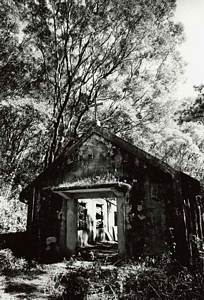姚瑞中
[藝術家簡介]
姚瑞中
姚瑞中生於台灣台北(1969~ ),1994年國立藝術學院美術系理論組畢業,曾代表台灣參加1997年威尼斯雙年展及許多國際大展,從事小劇場、電影、美術史教學、藝術評論、策展等工作,並以楊德昌電影《獨立時代》獲金馬獎最佳美術指導提名。其作品主要探討人類生存的荒謬處境,代表作品為「行動三部曲」。近年來作品則以攝影裝置手法呈現台灣特有的一種虛假、疏離的現實,代表為《獸身供養》(2000)、《野蠻聖境》(2000)及《天堂變》(2001)等系列;另有以銀箔結合攝影裝置的系列作品《死之慾》(2002)、《地獄頌》(2003),探討肉體與靈魂的永恆議題。曾策劃「幻影天堂-台灣當代攝影新潮流」(2002)、「金剛不壞-台灣當代行為藝術錄像展」(2003)、「出神入畫-華人當代攝影展」(2004)等展覽,並著有《台灣裝置藝術1991-2001》、《台灣當代攝影新潮流Since 1999》、《台灣廢墟迷走》等書。Yao Jui-Chung
Born in 1969 in Taipei, Yao Jui-Chung graduated from the National Institute of Art with a degree in Art Theory in 1994. He has represented Taiwan in the 1997 Venice Biennale and in a number of international exhibitions. Besides working in little theatre and film, he teaches art history, writes art criticism and works as a curator. He won a Golden Horse Award nomination for Best Art Direction for his work on Edward Yang’s film A Confucian Confusion. His works mainly deal with the absurdity of human existence. Representative works include his Action Series. In his recent works such as Celestial Barbarians (2000), Savage Paradise (2000) and Heaven (2001), he uses photo installations to reflect the peculiar false, alienated reality in Taiwan. Using silver foil and photo installation, the series Libido of Death (2002) and Hell (2003) explore the eternal question of the body and the soul. Yao has curated the exhibitions “The Realm of Illusion – the New Wave of Taiwan Photography” (2002), “King-Kong Never Dies: The Contemporary Performance & Video art in Taiwan” (2003) and “Spellbound Aura: The New Vision of Chinese Photography” (2004). He has published Installation Art in Taiwan 1991-2001, The New Wave of Contemporary Taiwan Photography Since 1999 and Roam The Ruins of Taiwan.
發佈於2004-07-25


